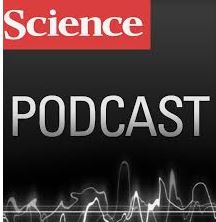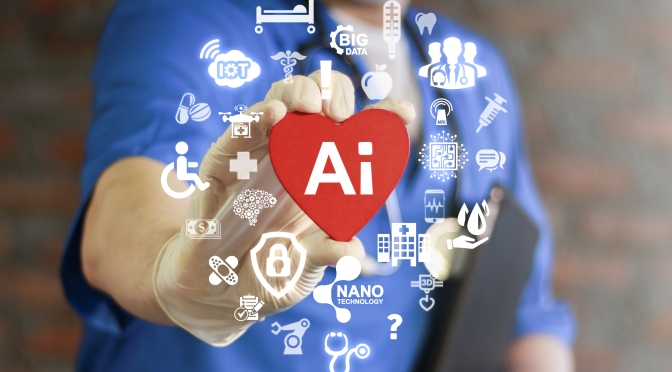Each week, e-grocer FreshDirect delivers 100,000 grocery boxes direct to customers’ doors. It all happens from its Bronx warehouse, the size of 11 football fields. Using an advanced AI system, temperature controls, nine miles of conveyor belt, and a fleet of delivery trucks, the company is able to cut out three steps in the normal grocery store supply chain. Business Insider visited the warehouse to see how the company moves 3 million grocery items a week in the face of unprecedented pandemic demand.
Tag Archives: Artificial Intelligence
Health: ‘Risks & Benefits Of AI Revolution In Medicine’

It has taken time — some say far too long — but medicine stands on the brink of an AI revolution. In a recent article in the New England Journal of Medicine, Isaac Kohane, head of Harvard Medical School’s Department of Biomedical Informatics, and his co-authors say that AI will indeed make it possible to bring all medical knowledge to bear in service of any case.

Properly designed AI also has the potential to make our health care system more efficient and less expensive, ease the paperwork burden that has more and more doctors considering new careers, fill the gaping holes in access to quality care in the world’s poorest places, and, among many other things, serve as an unblinking watchdog on the lookout for the medical errors that kill an estimated 200,000 people and cost $1.9 billion annually.
“I’m convinced that the implementation of AI in medicine will be one of the things that change the way care is delivered going forward,” said David Bates, chief of internal medicine at Harvard-affiliated Brigham and Women’s Hospital, professor of medicine at Harvard Medical School and of health policy and management at the Harvard T.H. Chan School of Public Health. “It’s clear that clinicians don’t make as good decisions as they could. If they had support to make better decisions, they could do a better job.”
Health & Technology: New MIT AI Model Detects Asymptomatic Covid-19
A team of MIT researchers have developed an AI model that can distinguish asymptomatic people with Covid-19 from healthy individuals without the disease through forced-cough recordings. (Learn more: http://news.mit.edu/2020/covid-19-cou…
Top New Science Podcasts: Clinical Trial Failures At The FDA, AI Wins At Curling

Investigative journalist Charles Piller joins host Sarah Crespi to discuss his latest Science exclusive: a deep dive into the Food and Drug Administration’s protection of human subjects in clinical trials. Based on months of data analysis and interviews, he uncovered long-term failures in safety enforcement in clinical trials and potential problems with trial data used to make decisions about drug and device approvals.
Sarah also talks with Klaus-Robert Müller, a professor of machine learning at the Technical University of Berlin, about an artificial intelligence (AI) trained in the sport of curling—often described as a cross between bowling and chess. Although AI has succeeded in chess, Go, and poker, the constantly changing environment of curling is far harder for a nonhuman mind to adapt to. But AIs were the big winners in competitions with top human players, Müller and colleagues report this week in Science Robotics.
Ocean Technology: The “Mayflower Autonomous Ship” To Launch Sept 16
Powered by AI and the energy from the sun, the Mayflower Autonomous Ship will be able to spend long durations at sea collecting critical data about the ocean. Working in tandem with human oceanographers and other autonomous vessels, the new-generation Mayflower provides a flexible and cost-effective option for deepening understanding of critical issues such as global warming, ocean plastic pollution and marine mammal conservation. The Mayflower Autonomous Ship is led by marine research organisation Promare, supported by IBM and a global consortium of partners.
Interviews: 78-Year Old American Philosopher Daniel Dennett (Video)
World-renowned philosopher Daniel C. Dennett argues that our inner worlds and religious ideas can all be explained as evolutionary functions of the brain.
Artificial Intelligence: “The Future From An Alternate Perspective”
The story follows our main character Luis as he tries to clearly explain the complexities and nuances of ‘language’, and the challenges of teaching AI to thoroughly understand it.
A massive project, an incredibly talented team, and a little bit of luck to get to the finish line. So thankful to my fellow artists and friends who helped pull this off.
Client: Microsoft
Agency: Trifilm
Creative Director: Mia Vyzis
Producer: Corey Lovett
Animation Director: Reece Parker
Art Director: Reece Parker
Illustration: Tom Goyon, Millie Woodcock, Reece Parker
Character Animation Lead: Khylin Woodrow
Cel: Khylin Woodrow, TJ Peters, Mathijs Luijten, Adam Henderson, Reece Parker, Salvador Padilla, Nata Metlukh
2D Animation: Matt Jameson, TJ Peters, Mathijs Luijten, Manuel Neto, Reece Parker
3D modeling/Animation: Billy Chitkin, Nocky Dinh
Editing/composite: Bruce Stead, Matt Jameson, Mathijs Luitjen, Manuel Neto, Tj Peters
Sound design: Ambrose Yu
CITIES OF THE FUTURE: “The Link – A Conscious City-Forest For 200,000 People” (Luca Curci Architects)
“The first smart city “conscious oriented”, that will prevent urban sprawl, produce and storage energy, improve air quality, increase urban biodiversity, and create a healthier lifestyle”. Arch. Luca Curci
With its 300 floors THE LINK will reach the maximum height of 1200 meters. The project combines sustainability with population density, and it aims to build up a zero-energy city-building. The city-forest is made of 4 main towers, connected one each other, equipped with green areas on each level, natural light and ventilation. 100% green transport systems. The vertical city allows its residents to get into a healthier lifestyle, in connection with natural elements, re-thinking the traditional concept of community and society.

![]() Architecture firm Luca Curci Architects presents THE LINK, a vertical city for 200,000 people. The project aims to rise above the challenge of population density by successfully combining vertical expansion with economic innovation. A self-sustainable city-forest, that will absorb CO2, produce oxygen for cleaner air and increase urban biodiversity. With interconnected communities’ programs. No suburbs. Less poverty oriented.
Architecture firm Luca Curci Architects presents THE LINK, a vertical city for 200,000 people. The project aims to rise above the challenge of population density by successfully combining vertical expansion with economic innovation. A self-sustainable city-forest, that will absorb CO2, produce oxygen for cleaner air and increase urban biodiversity. With interconnected communities’ programs. No suburbs. Less poverty oriented.
Using an urban operating system with an AI (Artificial Intelligence), the vertical city will be able to manage the global city temperature, levels of CO2 and humidity, will control the global lighting system, and will storage extra energy produced by solar panels and other renewable energy resources.
Digital Health: Americans Open To 24/7 Monitoring Devices, AI Technology To Lower Health Care Costs
Center for the Digital Future at USC Annenberg (Feb 19, 2020):
 Many Americans are willing to make significant personal tradeoffs to lower their health insurance rates or medical costs, such as agreeing to 24/7 personal monitoring or working with artificial intelligence instead of a human doctor, the Center for the Digital Future at the USC Annenberg School for Communication and Journalism finds.
Many Americans are willing to make significant personal tradeoffs to lower their health insurance rates or medical costs, such as agreeing to 24/7 personal monitoring or working with artificial intelligence instead of a human doctor, the Center for the Digital Future at the USC Annenberg School for Communication and Journalism finds.
Among the study’s findings:
- Nearly 1 in 4 Americans (24%) would work with an artificial intelligence-based technology if it lowered the cost of their health care.
- Most Americans (80%) think that access to health care is a basic right that should be available to all citizens regardless of their ability to pay. This is a view shared even by a majority of citizens who identify themselves as very conservative (56%).
- Significant percentages of Americans are willing to make profound lifestyle choices in exchange for lower insurance rates. For example, one-third of Americans would agree to 24/7 personal monitoring by insurance companies or health care professionals if their insurance rates were reduced.
- Twenty-one percent of Americans said they would stay in their current job if leaving it meant losing their current health coverage.
- Almost all Americans say health care is a key issue in the 2020 presidential election (92%).
- Even though Americans say they are satisfied with their current health insurance, they are open to alternatives. Thirty percent of Americans would consider buying health coverage from any company that offers lower costs, including a variety of non-insurance companies such as Amazon, Google, or Costco.
Health: New “Digital AI Device” Helps Identify Patients With Atrial Fibrillation (Mayo Clinic)
 This small device may change how doctors identify and manage patients with atrial fibrillation, an irregular heart rhythm that increases risk of stroke.
This small device may change how doctors identify and manage patients with atrial fibrillation, an irregular heart rhythm that increases risk of stroke.
And the past. The device uses artificial intelligence, or AI, to not only determine if a person is in the midst of an episode of atrial fibrillation, but also it can reveal if they’ve had the irregular rhythm before or will have it in the future.
Dr. Paul Friedman and his team trained the device to detect subtle changes in the heart’s electrical signals. Then in a study, they found it can identify patients with episodic atrial fibrillation. Even when they record the heart while the rhythm is normal – something no current wearable heart monitor can do.
That’s because a heart monitor won’t detect atrial fibrillation unless you have an episode while wearing it. But in a matter of moments, the AI device can identify people with atrial fibrillation, even if their heart is in normal rhythm. Then they can get on the right treatment to help prevent life-threatening strokes from happening.










